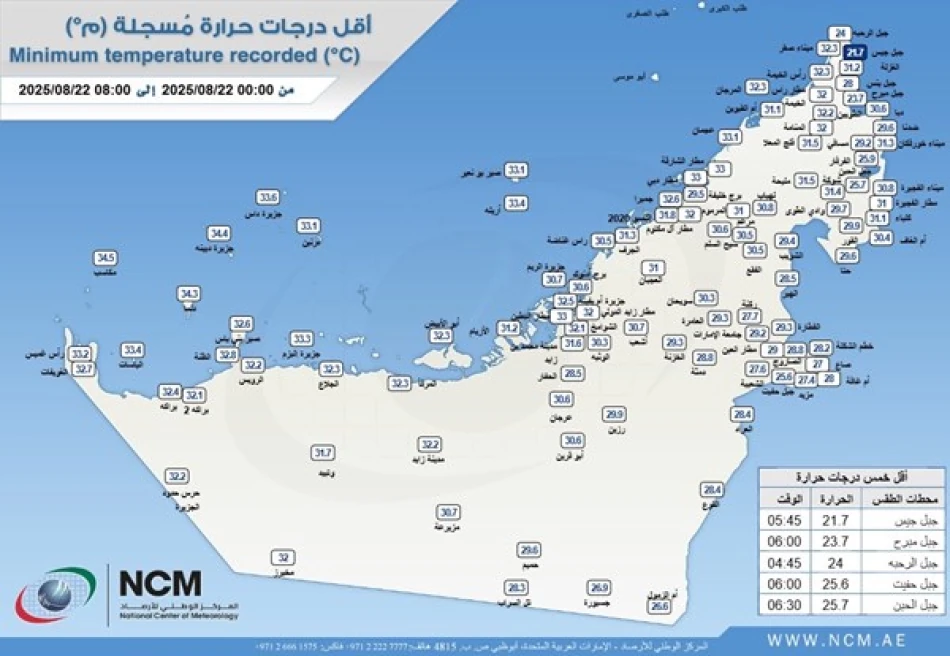
Ras Al Khaimah's Jebel Jais Records UAE's Lowest Temperature
UAE Records Lowest Temperature of 21.7°C as Winter Season Takes Hold
The United Arab Emirates experienced its coolest morning of the season today, with temperatures dropping to 21.7°C (71°F) on Jebel Jais mountain in Ras Al Khaimah at 5:45 AM local time, according to the National Center of Meteorology. This marks a significant seasonal shift for a country typically associated with scorching desert heat.
Mountain Peak Becomes the Nation's Cool Zone
Jebel Jais, standing at 1,934 meters above sea level as the UAE's highest peak, has once again claimed the distinction of recording the country's lowest temperature. The mountain's elevation creates a natural cooling effect that can produce temperatures up to 10°C lower than coastal areas during winter months.
This temperature reading represents the kind of pleasant weather that transforms the UAE into a regional tourism magnet during the winter season, offering a stark contrast to the summer months when temperatures regularly exceed 45°C (113°F).
Seasonal Economic Impact
These cooler temperatures signal the beginning of the UAE's peak economic season. The country's tourism, hospitality, and outdoor event industries rely heavily on the October-to-March period when temperatures become comfortable for international visitors and outdoor activities.
The timing aligns perfectly with the UAE's busy calendar of international conferences, sporting events, and cultural festivals. Dubai and Abu Dhabi typically see their highest hotel occupancy rates during these months, with visitors escaping colder climates in Europe and North America.
Regional Weather Patterns
The temperature drop reflects broader regional weather patterns affecting the Arabian Peninsula. Unlike tropical destinations that maintain consistent temperatures year-round, the UAE's desert climate creates dramatic seasonal variations that have shaped the country's modern economic calendar.
Jebel Jais has become increasingly significant not just for weather records but as a tourism destination itself, featuring the world's longest zipline and mountain resort facilities that capitalize on its naturally cooler climate throughout the year.
Most Viewed News

 Layla Al Mansoori
Layla Al Mansoori






